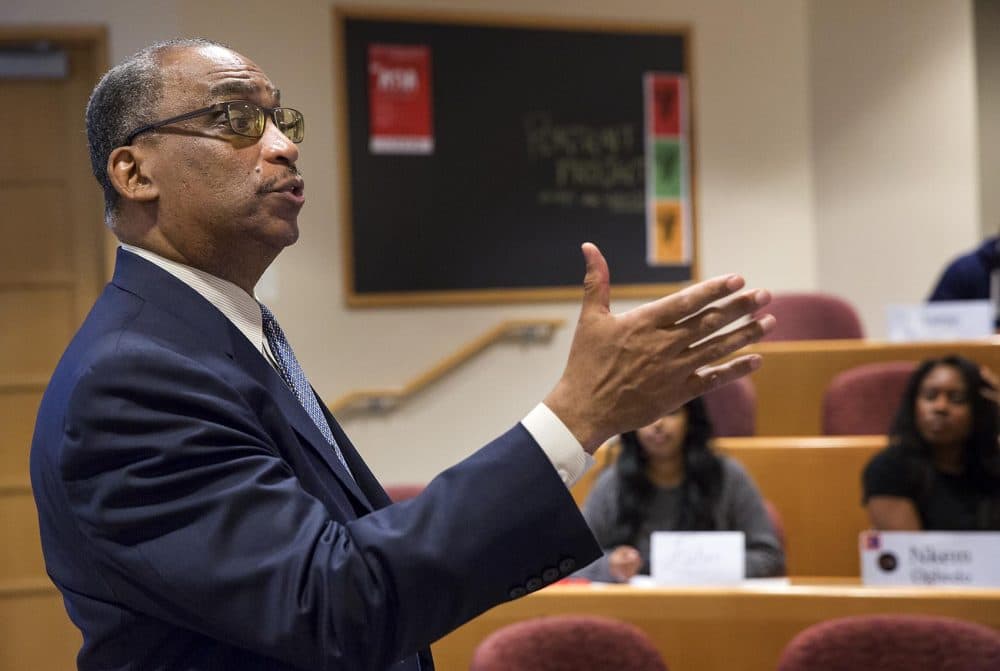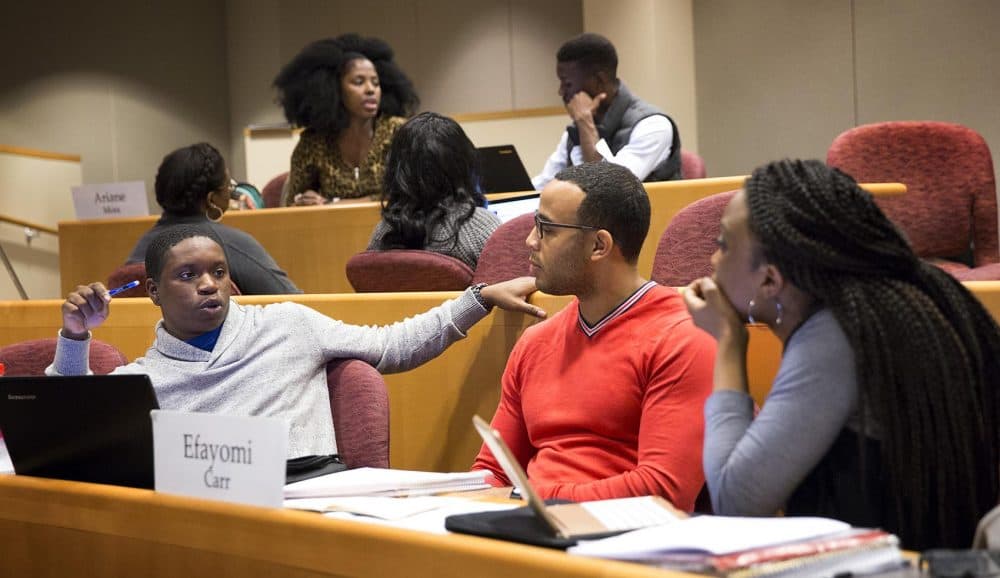Advertisement
Harvard Business School Looks To Diversify Its Case Studies With More Black Executives

Case studies are key to business school education. They're real life examples of major business challenges. Most of these case studies have been written by Harvard Business School professors. The school has some 10,000 case studies used all over the world. And the majority of them feature white business leaders.
HBS professor Steven Rogers wants to change that — with new case studies that feature black business leaders.
"It's imperative that first of all our black students see role models. They see people — great businessmen and businesswomen — who look like them," Rogers says.
So Rogers wrote 14 new cases studies that he teaches in a class he started this spring called "Black Business Leaders and Entrepreneurship." The case studies cover a range of businesses and challenges. One case features Linda Johnson Rice and her decision to sell Ebony magazine. Another case study on Corey Thomas, the CEO of Boston-based cybersecurity firm Rapid7, examines whether or not to take a startup public.
'It's Hard To Be What You Can’t See'
On a recent Wednesday afternoon, Rogers introduces students to Dr. Eve Hall, who had to decide whether a chamber of commerce in Wisconsin should create an investment fund for African-Americans.
Rogers puts the decision to the class and asks, "Why is such a fund needed?"
Student LaToya Marc answers: "Because African-American loans are not approved at the same rates as others. The access to capital is just a huge issue in African-American entrepreneurship."
Rogers then explains how an investment fund could address that issue.
"If we're interested in increasing the number of African-American entrepreneurs then we need something that says let's target these people," Rogers tells the class of over 40 students. "[The fund] provides us the opportunity to increase the number of African-American entrepreneurs [and] it provides the opportunity to increase African-American employment as a result of that."

Marc, the student, is in her last year at Harvard Business School and is co-president of the student body. She says these types of case studies are really important so she can see business leaders who look like her.
"It's hard to be what you can’t see," Marc says. "So I think that having representation of someone who shares a background as you, who is focused on solving a problem in an undeserved market, can be really inspiring."
Marc comes from a lower income family and says examples of successful black business leaders — or protagonists, as subjects are called in Harvard's case studies — will help her when she enters the workforce.
"No one in my family has attended an Ivy League college, no one in my family has an MBA. This is a unique experience where I don’t really have anyone in my family I can look to," Marc says. "So, I'm relying on mentors, I'm relying on professors like professor Rogers, I'm relying on the connections that I make with the protagonists to help to propel my career."
Advertisement
This is exactly the connection Rogers wants at all business schools. And he says it's just as important for non-black students.
"When they are the leaders of their companies, when it's a time to make a decision about making an investment in a black entrepreneur, they can say, 'I've seen people who are black who made a lot of money, who are successful and therefore I don't have some personal hangups — I've seen black brilliance in action,' " Rogers says.
Change The Classroom To Change The Workplace
Attitudes in the workplace can mean some people get left out of jobs.
"It's a fratboy culture in some sense," says professor Paul Gompers, a Harvard Business School professor who studies hiring practices.
He says people tend to work and gather with people like them, which can lead to biases — but that behavior can be changed.
"Subtle exposures matter," Gompers says. "And there's research on this, that if you both associate with, if you see a diverse set of case protagonists, that it can go and start the process of de-biasing people of these subtle biases."
And Gompers says Rogers' class is a step in the right direction to have a more inclusive workforce.
But right now, the class is an elective filled entirely with black students. Professor Rogers' hope is to see more black business case studies integrated into required classes.
Harvard says it's committed to diversifying its catalog of case studies to increase its number of black business cases. And Rogers is now working with other professors to create more of them.
This segment aired on April 24, 2017.
